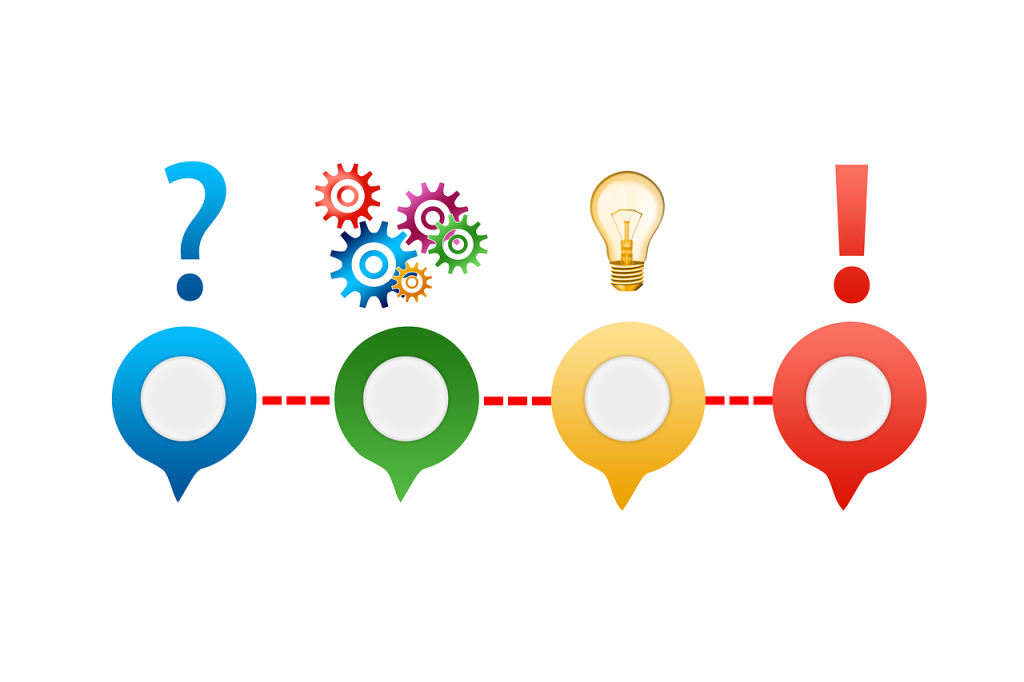
Questions and Their Role in Your Personal Health
There are many ways you can take an active role in your own health care and treatment decisions. Honesty is important – with yourself as well as with your care team – and knowledge/awareness of your symptoms/illness/susceptibilities is helpful.
But getting to the truth?
And gaining understanding of what you’re up against (or at risk for)?
That often takes time.
One of the best ways to use that time — be it between appointments or during focused/well time or when you have the available support of an advocate or record-keeper — is to ask questions.
There are two types of questions I’m going to focus on in this post:
- Questions related to why, and
- Questions regarding wherefrom.
The first being a matter of reasoning, and the second an issue of history and research.
↔
The Why Question(s) – Self Analysis
Whether you are someone who goes to the doctor regularly as a preventative or someone who only sees a medical professional when you are feeling unwell, it is helpful – to your doctor, of course, but more importantly: it is helpful to you and to your treatment/care – if you can take the time to examine some ‘why’s of your situation.
If you have a chronic condition and have begun experiencing a new symptom related to that condition: Why is that? Ask yourself, “What has changed recently?” (Think: changes in routine or eating/sleeping patterns, environments you are exposed to, new medicines or supplements you’ve tried, etc.) Also ask yourself if you’re supposed to be doing something that you have not been doing. As in: I’m supposed to take Impossibletopronounce medication every morning. Have I been? (Be honest!) Or: The doctor says I’m supposed to limit potassium. Did I consume something with potassium* in it recently?
A calendar that tracks activity and/or diet can be helpful with this sort of thing, even if it’s just notes made on your smartphone calendar app. I keep my work schedule on that app, as well as personal appointments, to-do reminders, and my daily calorie count. I find it helpful to go back and see what the past few days have looked like when I’m asking Why? about a change in condition. If, for instance, I have a grinding headache before I’m halfway through my work day on Wednesday, I can look back at the past few days and see what might be the culprit. Perhaps Tuesday was ‘normal’, but when {1} I look at my work bookings from Monday, I realize that I spent five hours driving between four counties of the course of a 12-hr work day that day, and {2} remember that I started my day on Tuesday with only three hours of sleep, which {3} was compounded by a restless night Tuesday night and an early morning wake-up call on Wednesday. So, yeah.
Too much drive time + Too heavy work schedule one day + Too little sleep two nights in a row = HEADACHE
Duh.
It seems like a simple matter of backtracking and applying common sense…
But backtracking is often not ‘simple’ and common sense is not particularly common, especially when it comes to things like I don’t feel good.
↔
Asking The Doctor: Why?
I know some of you are thinking, Why would I ask the doctor?
My meaning, however, is more along the lines of, I need to ask the doctor why this is happening.
When my migraines got bad enough to send me to the emergency room, I finally started asking the question: Why?
It took a few visits to a naturopath, a referral to neurology, the willingness to try both homeopathic and traditional treatment measures, and a lot of elimination work, but finally I got some answers. (And a diet & med/supplement regimen that work for me.)
Some of the ‘why’ questions were things I could figure out and/or research for myself; others required that I formulate specific, intentional questions for my doctor{s} to address.
When I visit the doctor with my spouse, I typically go in with specific questions – questions that he will either deem unimportant or will forget to ask – about his symptoms/reactions, because I want to know why.
For example:
- To the nephrologist, who is well aware of his overall condition as well as all the medications he takes and their side effects: “Doctor, his skin is papery. It bruises easily and when he gets scratched it tears. Can you tell me why that might be?”
- To the sleep doc: “He started drinking non-caffeinated beverages and it seems to have helped a little bit, but he’s still having restless sleep. Does his sleep study give any indication as to why?”
Asking for these types of explanations is helpful, even if the doctors are unable to give definitive responses**, because their “It could be __________” and “A new study recently showed __________” can provide jumping-off points for further self-research or just simply make us go “…..oh…..” because it will highlight something we never even thought of that might be relevant.
**Are straight answers really so difficult?
↔
And speaking of relevance…
Relatives are extremely relevant.
How much do you know about your family health history?
Many people are completely unaware of things like disease and its tendencies where their own families are concerned. Do you know, for instance, who in your family has had heart problems? How about lung/breathing issues or gastrointestinal problems? Are you aware of any family member in your own generation (think: siblings and cousins) or the generation prior (as in: parents, aunts/uncles) who have liver or kidney disease, palsy or seizures, muscular degeneration or fine motor issues?
I think – for many of us – the answer is either an assumed “No problems in my family” or a very non-specific “I think Uncle So-and-So had surgery for… something?… last year…”
Of course, if you have the kind of relationship with your family members that allows you to ask health questions** — and people tend to get very clammed-up and defensive about health questions in my own family (because “It’s so personal” and “Why are you being so nosy?) even though we can and do discuss them, so I can appreciate the difficulty this may cause — I’d encourage you to find out what as much as you can from whomever you can. Because, genetics.
In my family, for instance, I am aware of the following things:
IN MY MOTHER’S LINE
Great-Grandmother: stroke
Great-Grandfather: heart attack
Grandfather (child of the above): lukemia
Aunt: high cholesterol, reproductive issues, stroke
Aunt: dairy intolerance, thyroid problems
Uncle: schizophrenia, addiction
Uncle: throat cancer, addiction
Brother: mental illness{es}
There’s more, but this is a basic outline from which I can work to make certain assumptions about risk (notice: the cancer, stroke, and mental illness threads) as well as a jumping-off point from which I can do further research. I know, for example, that my great-grandfather’s heart attack was the cause of his death. What I don’t know is how old he was (70s?) or what his dietary lifestyle consisted of. Those would be helpful bits of information – facts that I could probably glean via conversation with my mother, who remembers him fondly – to have on hand, as knowledge is expedient to mitigating risk. (It would also help me figure out a few things about familial longevity.)
NOTE: There is a genealogy blogger I found via the A-to-Z Challenge this year who wrote about family health history and gave an example of how to chart it, here. If this topic interests you, I’d recommend checking it out. 🙂
↔
The bottom line?
When it comes to your health, you’re bound to have questions. Whether your questions are relative to your symptoms or are simply about your relatives…
ASK.
The answers are relevant!
←→
April A-to-Z Blogging Challenge: Letters QR
*This was a ‘thing’ with my husband when he was on dialysis. The man loves potatoes (particularly in the form of potato chips) but they are high in potassium, which is a no-no for kidney patients. So he would eat a whole bag of Ruffles and then [air quote] wonder [/end air quote] why he didn’t feel well. Hmph!
**I fully appreciate that some of us don’t have access to our biological families or their personal health histories, either due to personal choice or circumstance. I, for one, am (intentionally) estranged from my biological father’s family. So I have to take what I know and apply deductive reasoning to make the best educated guesses I can.***
***i.e., I am aware – through the community grapevine and via my mother’s awareness of the family she was previously married into – that G.I. problems are an issue in my paternal line. Colon cancer has made its presence well-known in that family. Knowing I’m genetically at risk has allowed me – via sharing the information with my doctor – to make assessment and prevention choices accordingly. I also know that my paternal grandmother, while generally known to be a worrier and is considered by many ‘neurotic’, is still alive. She was born during the Great Depression. So: longevity.


Some great advice here, Feve! I will remember to ask the ‘why’ question a lot more and maybe it’s time to make a list of the conditions of my relatives.
Rebel xox
I’ve found both things to be really informative so far!